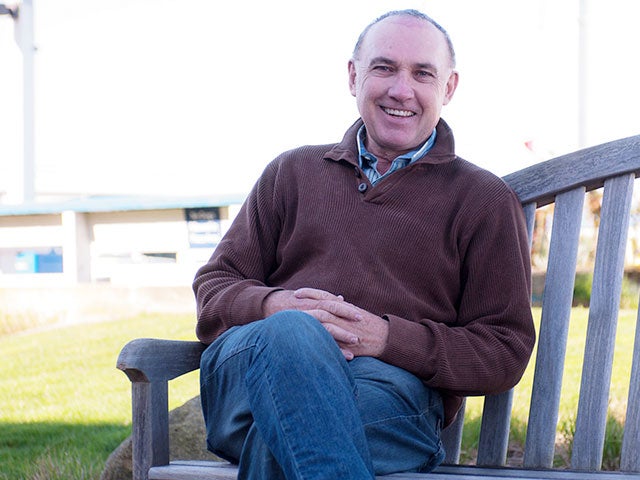Getting Along with Grown Siblings
“We didn’t get along as kids, and get along worse now,” Andrea said, tears streaming from her eyes. “I don’t know why my sisters still have the power to make me so upset.”
Thirty-seven years old and a professional woman, Andrea had the ability to command a high salary, live an above average lifestyle, was verbally articulate and yet still felt flustered at family gatherings.
“There is always one sibling not getting along with another,” she said. “And if it’s not one sibling fighting with another, it’s my parents still bickering. My kids don’t want to visit their grandparents or aunts and uncles because of the chaos.”
“That is very common,” I said to Andrea. “If you haven’t made peace with your siblings or changed the way you relate to each other, you’re bound to have problems.”
We went on to talk about her childhood and make plans for gathering as a family. We talked about how she and her three siblings often engaged in power struggles as children, jockeying for favored position with their parents. We talked about how they had used sarcasm and passive-aggressive tactics as kids, and now used the same ones as adults. We shared how many of the wounds of childhood still existed today.
“Childhood wounds don’t just disappear,” I shared. “We remember being mistreated, neglected or abandoned. We remember being picked on, called names or punished harshly. Those incidences can range from uncomfortable and troubling to traumatizing. They can play out again and again in adulthood.”
“It still seems strange to me,” Andrea continued. “A 37 year old woman who can feel crazy in her family after all these years. My parents bickering in front of me can still make me feel anxious and out of control. My older brother bragging about his latest deal or my sister complaining on and on about her job makes me not want to be around them. It shouldn’t be like this.”
“You might be surprised at how many adult children are entering into family therapy to heal old wounds,” I said. “In fact, I’m conducting more and more Family Intensives, where we gather as a family over a weekend to iron out old wounds. It is not uncommon for lots of tears to flow as adult siblings forgive each other for wounds caused in childhood. It’s not uncommon for healing to take place with parents where the parents never knew wounds existed.”
“Yes,” Andrea said. “I understand that. I would appreciate the opportunity for my family to sit down and share honestly. I’m just not sure they would all do it.”
“You never know unless you try,” I said.
Andrea and I began to discuss the possibility of meeting together with her family. There were questions about whether they would share the same motivation to heal brokenness in her family. Did they share the same concerns? Would her parents participate in the healing process? Here are a few additional issues to consider if you wish for healing in your family.
1. Childhood wounds don’t simply disappear.
As much as we might wish it were so, childhood wounds, like any other wounds, must be worked through. Like any feelings denied or pushed away, they need attention. As the saying goes, ‘A feeling denied is intensified.’
2. We often continue to interact with our siblings in much the same way we did as children.
Because of this, and interacting with parents in much the same way, our wounds often remain. Unless we stop, reflect and review our relationship patterns, nothing changes. Too often we continue in old patterns without stopping to recognize the impact of our actions, or reactions, to our siblings and parents. We continue to live in denial rather than honestly face ourselves and our family.
3. It’s never too late to change old patterns.
Fortunately, we can review and revise how we relate to our siblings and parents. We don’t have to do things the way we’ve always done them. In fact, as adults we have greater skills to change old patterns. We can choose effective relationship skills. We can, with God’s grace, interact in healthier ways and seek healing and forgiveness.
4. We can practice new patterns.
As adults, with new skills, we can practice relating in healthier ways. Noticing dysfunctional patterns, we can agree with our adult siblings to be mindful of how we believe we are being treated, or feelings that get ruffled, asking for changes we need. Together we can create new ways of connecting to each other.
5. Often our siblings and parents will welcome more effective ways of interacting.
While there certainly are those that choose to remain oblivious to old ways of interacting, many will choose a healthier way if invited to do so. Take care not to blame your siblings for your feelings, remembering that you have dancing to the old music as much as them. Offer new, healthier, more vibrant and connecting possibilities.
‘It’s never too late to have a happy childhood’, the saying goes. While we cannot erase the past, we can envision and request a better relationship with our adult siblings and parents. We can practice the new skills we want from them. We can be the change we seek from others, and often they will respond favorably.
Share your feedback or send a confidential note to me at therelationshipdoctor@gmail.com and read more about The Marriage Recovery Center on my website www.marriagerecoverycenter.com and yourrelationshipdoctor.com. You’ll find videos and podcasts on saving a troubled marriage, codependency and affair-proofing your marriage.
